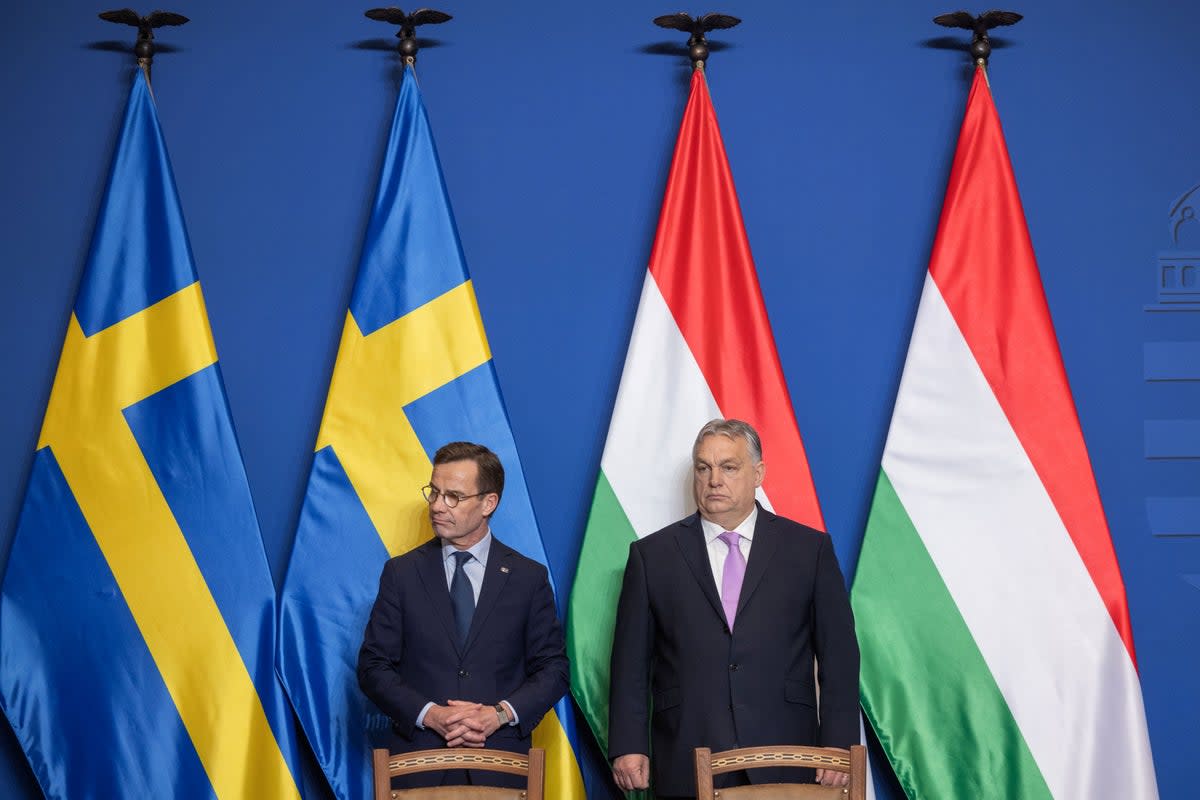Trump and Biden’s foreign leader choices this week reveal how they would govern

It’s basically an aphorism at this point that American voters almost never make a decision about their choice for president based on foreign policy. The only exception comes when Americans are in harm’s way, as Lyndon Johnson, Jimmy Carter, Ronald Reagan, George W Bush and Barack Obama can all attest.
At the same time, presidential candidates’ foreign policy reveals plenty about how what they value at home. Harry Truman’s desegregation of the US military reflected Democrats’ larger shift away from being the party of Southern racists to becoming the party of civil rights. Reagan’s ardent opposition to communism abroad reflected his desire to slash government spending at home.
That makes President Joe Biden and former president Donald Trump’s choices of foreign heads of state to meet this week particularly interesting. They reflect much about what values they want to promote at home.
During his State of the Union Address to Congress on Thursday, Biden invited Swedish Prime Minister Ulf Kristersson, in order to celebrate the Scandinavian nation’s acceptance into NATO. Biden’s decision to welcome the head of state for a country that has historically remained neutral in numerous world conflicts reflected his efforts to actively promote democracy at home and abroad.
Indeed, during his address, Biden tied the efforts to defend democracy abroad with his efforts to defeat the authoritarian creep of Trumpism at home. He pointedly mentioned how Trump had killed legislation that would have provided aid to Ukraine and how his “predecessor” had incited a riot to overturn the 2020 election results.
“History is watching — just like history watched three years ago on January 6 when insurrectionists stormed this very Capitol and placed a dagger to the throat of American democracy,” Biden said.
Biden has good reason to tie the two together, given Trump’s fond words for Putin and the fact that Russia intervened in 2016 to help Trump become president. Most notably, in a 2018 press conference with Putin in Helsinki, Trump said, “President Putin says it's not Russia. I don't see any reason why it would be.”
Conversely, Trump’s decisions about which foreign leaders visit him indicate what kind of president he will be. In recent months, he has gone from spewing anti-immigrant rhetoric to spouting outright white nationalist talking points about migrants bringing disease and “poisoning the blood” of the United States. He has also promised to carry out the “largest deportation in the history of our country.” These words have not appeared to repel Republican voters.
Trump reportedly met with Hungarian Prime Minister Viktor Orbán at his Mar-a-Lago estate in Palm Beach this week. That shouldn’t be surprising.
Trump has routinely praised the Hungarian far-right leader and Orbán has become a darling of many in the conservative movement for his hard-right policies on everything from immigration to his opposition to LGBTQ+ rights. The Conservative Political Action Conference even recently hosted an event in Hungary. Orbán has also said about Hungary that “We do not want to become a mixed race.”
Not surprisingly, Orbán also has severely curtailed democracy, rewriting the nation’s constitution and school textbooks. He has implemented laws that specifically benefit his Fidesz Party. According to Freedom House, a nonprofit that monitors democracies across the globe, Hungary’s status as a democracy has severely diminished since Orbán took power.
Orbán is also a critic of supporting Ukraine. Last year, he told Tucker Carlson, a hero of extreme forces within the GOP, that a Trump presidency would be “the only way out” of Russia’s war with Ukraine and the idea that Kyiv’s military could beat Russia was “a lie.” This is not unfamiliar rhetoric. Many Republicans — such as Senator JD Vance of Ohio and Ron Johnson of Wisconsin — have made similar comments.
Carlson and others have also praised Hungary’s “illiberal democracy” model that values conservative Christian hegemony over liberal democratic values.
All of this gives an idea of the type of government Trump would provide were he allowed to return to office. He’s previously said he would only be a dictator on his first day in office and “for the liars and cheaters and fraudsters and censors and imposters who have commandeered our government, it will be their judgment day.”
Who Biden and Trump choose to acquaint themselves with offers a glaring relief about what they value. While most voters may not understand the depth of these choices, they reveal as much about their domestic policy proposals as their foreign policy ones.


